Discover the versatile uses and health benefits of coconut oil for beauty and wellness. Explore how it can enhance your daily routine—read more now!
Does Bar Soap Carry Germs? Are Soap Bars Hygienic?

Are you considering returning to "old school" natural soap bars like your parents used? For the environment's sake, you may want to ditch the chemical-filled liquid soaps and shower gels or reduce your plastic bottle usage.
Whatever the reason, a common question that comes up in emails or at live events is: Does bar soap carry germs?
A quick comparison reveals that alcohol-based hand sanitizers are effective but should be used with caution, especially around kids, due to the risk of alcohol poisoning.
So the answer is yes and no; there you have it.
Understanding how soap works can help you understand its role in killing germs.
Of course, you want to wash with something clean, right?
Germs are attracted to water, not soap. A dry bar of soap won't attract germs. If you see bare soaps in a store or at a market stall, go ahead and pick them up and smell them.
However, if you leave your soap in a moist environment, such as on the edge of the bathtub in a puddle, then yes, your slippery soap molecules may attract low, detectable levels of bacteria.
How Soap Molecules Work

Soap is good for hygiene and preventing illness. But how does soap work? It all comes down to the soap molecules. Each soap molecule has two ends: a hydrophilic head that loves water and a hydrophobic tail that loves oils and fats. This dual nature allows soap to break down and remove dirt, grime and germs. When you wash with soap and water, the soap molecules lift the dirt and germs away and leave your hands clean.
The process starts when you wet your hands. As you lather, the soap molecules target the oils and grease that trap dirt and germs. The hydrophobic tails attach to these oils, while the hydrophilic heads stay attracted to water. This breaks down the oils and suspends them in water to be rinsed away. This mechanical action removes visible dirt and disease-causing germs.
Rubbing and scrubbing your hands helps soap work even better. It dislodges stubborn dirt and microbes. Regular soap doesn't kill germs outright but significantly reduces their presence. In healthcare, washing your hands with soap and water is crucial for preventing infections. Soap is key to public health and reducing illness transmission. Next time you wash your hands, remember the science behind soap and how it keeps you safe.
Plain Soap Works
Soap is a powerful tool for illness prevention. When used correctly, it can remove up to 99% of germs and bacteria from our skin. Soap molecules break down and remove the surface membranes of some bacteria and viruses, including the coronavirus. Lathering and scrubbing create friction that lifts and washes away dirt, grease, and microbes under running water. So when you lather up, you're not just washing away dirt; you're also evicting germs!
Soap's effectiveness comes from its ability to disrupt the lipid membranes of bacteria and viruses, making them inactive. Scrubbing dislodges germs, which are then rinsed away with water. This dual action ensures our hands are clean.
While soap is effective, the duration of handwashing is key. Experts recommend washing your hands for at least 20 seconds, about the time it takes to sing "Happy Birthday" twice. This allows the soap molecules to fully interact with the oils and germs on your skin and achieve maximum cleanliness.
Regular handwashing with soap reduces respiratory and diarrheal diseases, which are the leading causes of illness worldwide. By practising good hand hygiene, we can reduce the spread of infections and create a healthier society.
In short, soap is not just a cleansing agent but a powerful tool for disease control. Understanding how soap works and using proper handwashing techniques can help us avoid harmful germs and bacteria.
Are Germs on Soap Harmful?
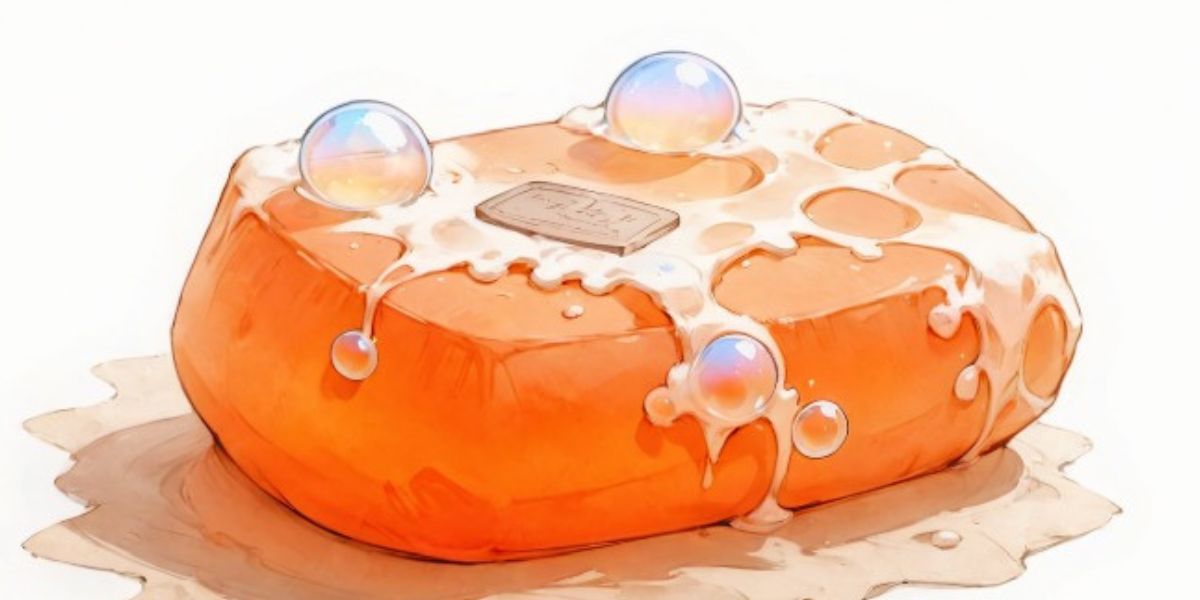
Everything is covered with germs, but here's the thing: most of them don't affect us; otherwise, we would always be sick.
It's unlikely that the bacteria left on your soap will cause an infection or make you sick. They generally have no impact on you or your skin cells. In fact, most of these germs originate from your own body.
Don't worry about sharing your favorite bar soap with family members. Chances are, you and your family already share many of the same microorganisms.
Using bar soap to wash your hands in public areas is probably not a good idea. Germs can transfer from contaminated surfaces to your hands, increasing the risk of self-infection. Public facilities don't usually have bar soaps.
If you have a compromised immune system, it's wise to exercise extra caution. In such cases, opting for liquid soaps, hand sanitizers that can be dispensed from a container, or shower gels might be a safer choice. Keep in mind that hand sanitizers are not effective against harmful chemicals like pesticides.
However, for the general public, our bodies are typically well-equipped to handle germs effectively, so there's no need for concern.
Antibacterial Soap: Is it Necessary?
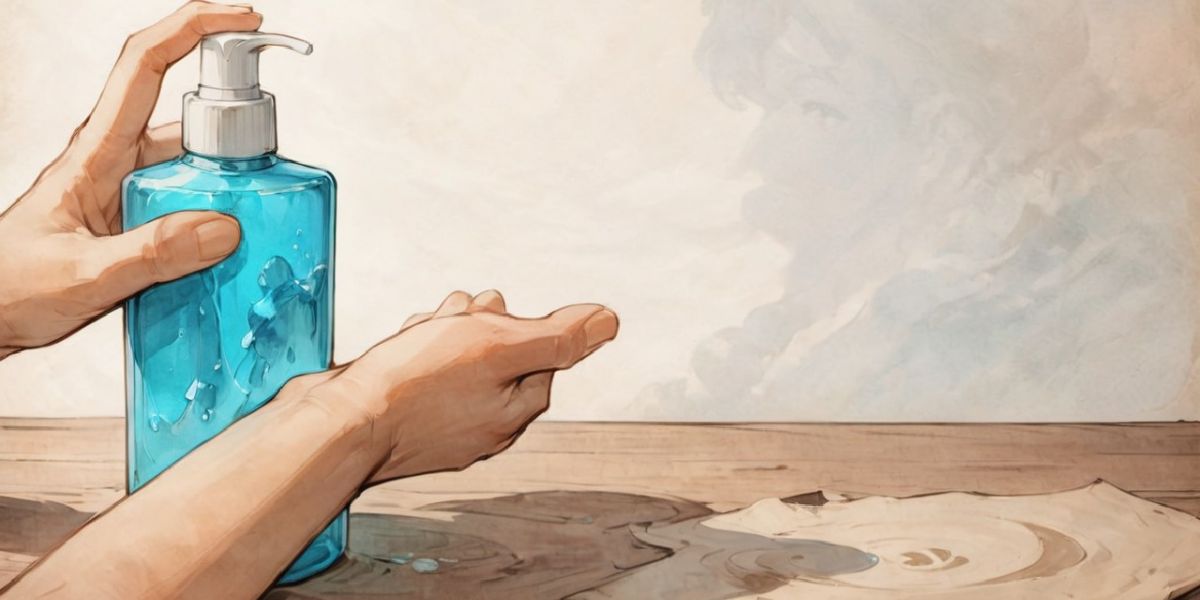
Antibacterial soap has become popular, but is it really needed? The short answer is no. Antibacterial soap is not more effective than plain soap and water in preventing illnesses. The FDA has not found definitive proof that antibacterial soaps are better than regular soap and water for illness prevention. Antibacterial soap often contains chemicals like triclosan, which is linked to antibiotic-resistant bacteria and hormonal effects. Plain soap and water are the best ways to clean your hands.
The appeal of antibacterial soaps comes from the idea that they provide extra protection against germs. However, research shows that washing with regular soap and water is effective in removing germs. Overusing antibacterial products can lead to antibiotic-resistant bacteria, which is a public health risk, especially in healthcare settings.
Antibacterial soap may also give us a false sense of security and cause us to neglect proper handwashing techniques. The best way to prevent infections is through thorough handwashing with regular soap and good hygiene practices.
In summary, antibacterial soaps may seem good, but the risks outweigh the benefits. Prioritise handwashing with plain soap to reduce the spread of germs without the unnecessary chemicals.
Tips To Remove Germs From Bar Soaps
Here are a few simple things you can do to eliminate the germs on your soap bar. Frequent hand washing is good for hygiene, but overdoing it can dry and damage your skin, which may worsen cuts and create an environment that harbours more bacteria.
-
RINSE YOUR SOAP BAR
It's good to rinse your soap under running water to remove the slimy outer surface before lathering up. The slime is where the germs are hiding. Hand sanitisers are ineffective when hands are visibly dirty or greasy, so always use soap and water.
-
LET YOUR SOAP DRY
After each use, store soap where it can drain and dry. Germs love to hold meetings in moist environments, so letting your soap dry can prevent that.
-
USE TWO SOAP BARS
Try to alternate your soap bars to give enough drying time between each use. And this is a good excuse to mix it up and use different soap scents!
Hand Hygiene Practices
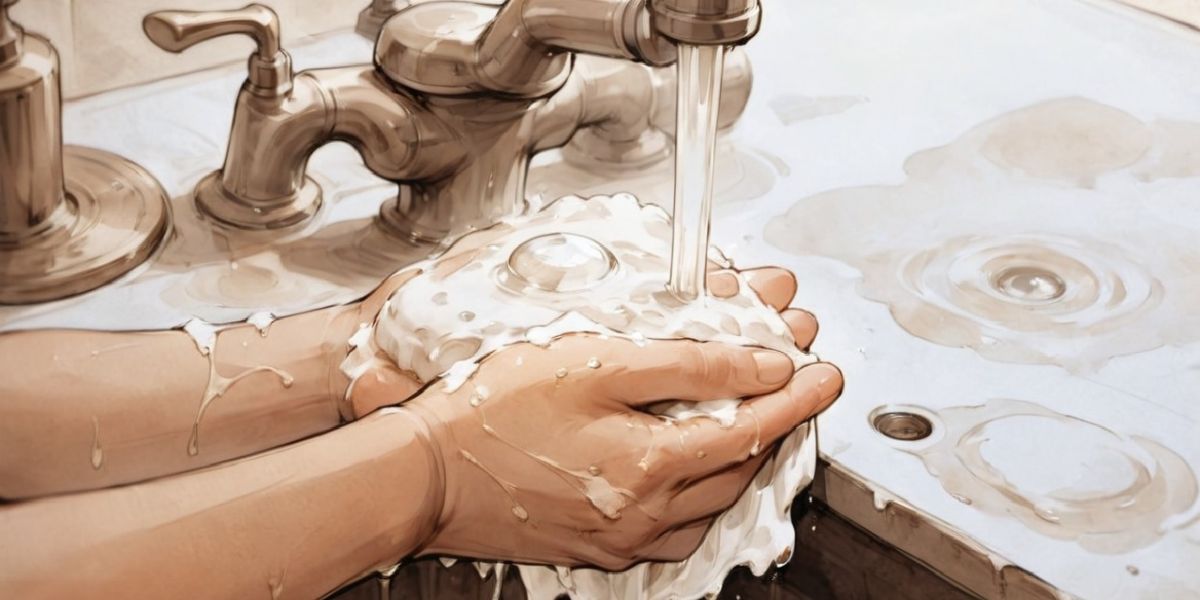
Good hand hygiene is key to preventing the spread of illnesses. Here are some practices to follow:
-
Wash your hands often, especially after using the bathroom, preparing food, and blowing your nose, coughing or sneezing.
-
Use soap and water, and lather your hands for at least 20 seconds.
-
Get the backs of your hands, under your nails and between your fingers.
-
Rinse with clean water.
-
Dry with a clean towel.
-
Use hand sanitiser if soap and water are unavailable, but ensure it has at least 60% alcohol.
Follow these simple steps, and you'll be healthy, as will others.
What Soap to Use
With so many soaps to choose from, it can be confusing. Here are some tips to guide you:
-
Choose plain soap that is gentle on your skin.
-
Avoid antibacterial soap as it's not more effective than plain soap and water.
-
Go for fragrance-free and hypoallergenic soap.
-
Consider soap with moisturising ingredients to keep your skin hydrated.
-
Always read the label and look for a soap that is certified by a reputable organisation.
Choosing the right soap can keep your skin clean and healthy without the extras.
Et Vous?
Do you use soap bars? If so, what are your concerns? Let us know in the comments below. If you liked this post, share it using the germ-free buttons below. I'll be eternally grateful :)


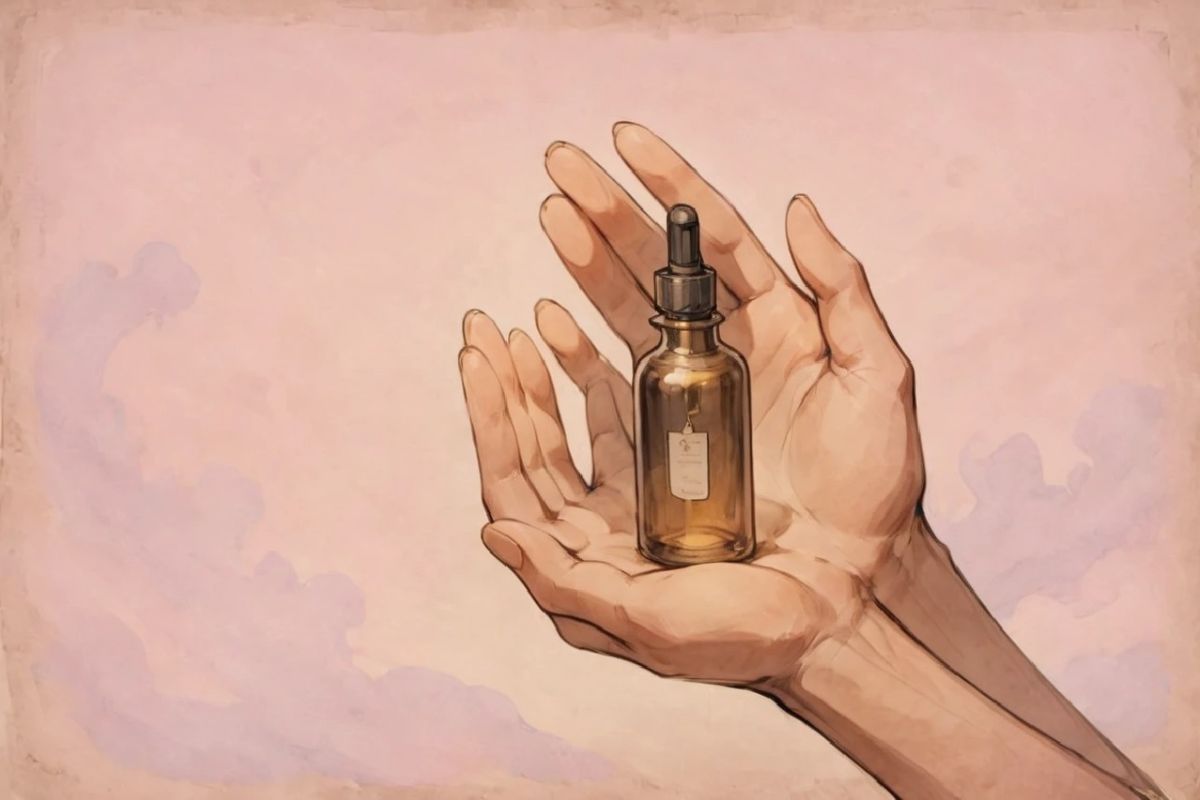
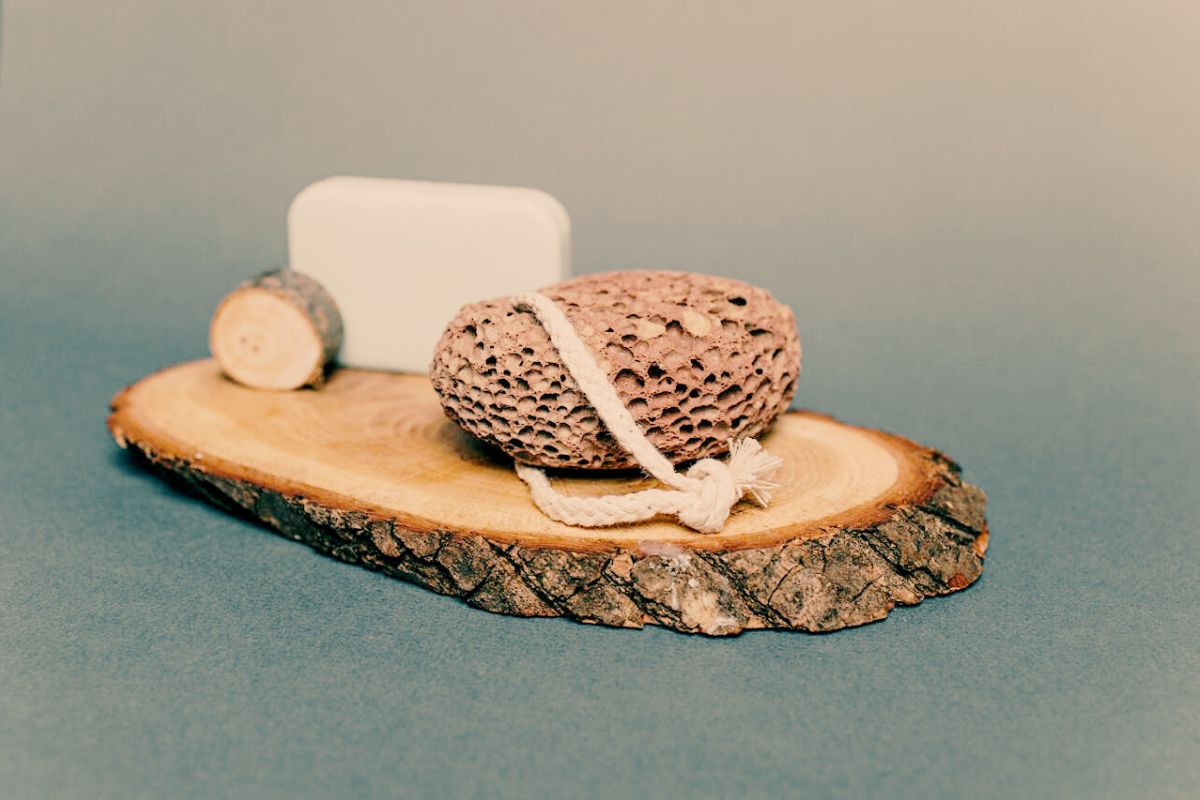



Dear Ken,
Thank you very much. That is a really interesting article. I use bar soaps myself but I hadnít thought about other people handling them in the shop! !
You have a very readable style too, unlike many who drop through oneís inbox and itís only 6.45am, thatís some praise indeed!
Thank you for your kind words, Paula. I'm glad you enjoyed it :)
_____ _____